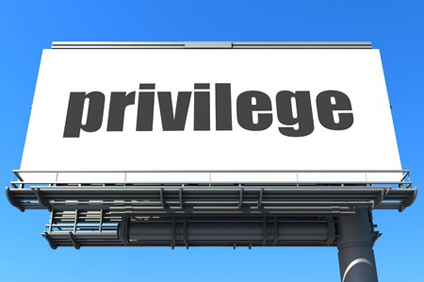Is vaccine refusal a function of privilege?
That’s the question that sociologist Jennifer Reich asks and answers in her provocative paper Neoliberal Mothering and Vaccine Refusal: Imagined Gated Communities and the Privilege of Choice published in the October 2014 issue of Gender & Society.
Reich starts by explaining that there are two group of children who are unvaccinated, the poor and the privileged:
On one side, there are undervaccinated children who lack consistent access to medical care. These children are more likely to be Black, live in a household with an income near the poverty line, and have a mother who is younger, unmarried, and does not have a college degree. Children who are unvaccinated because of parental choice, however, look significantly different. They are more likely to be white, have a married, college-educated mother, live in a household with an income over $75,000, and be geographically clustered. Although vaccine refusal is referenced in gender-neutral terms, it is in fact a gendered process in which women are responsible for navigating meanings of health, necessity, risk, and state intervention for their children.
Indeed, Reich notes:
In a striking illustration of this, the state of Colorado, which has among the most liberal legal frameworks for opting out of vaccines, nonetheless sanctions welfare recipients whose children are not fully vaccinated.
In other words, when unmarried women of color on public assistance refuse to vaccinate their children, they are punished, but when white, partnered, economically independent women refuse to vaccinate their children, they are accommodated because of their elite status.
Reich’s description of these privileged women is spot-on:
… Bobel found that the women she termed “natural mothers,” who reject mainstream parenting advice in favor of natural and instinctual mothering practices, believed they “wrested control of their personal lives away from institutions and experts and others who claim to ‘know best’ and returned it to the site of the individual family,” even as they relied on privilege to do so…
Vaccine refusal is the paradigmatic example of the way that privileged women leverage their privilege to protect their own children and ignore everyone else.
As privilege facilitates choice, it also potentially jeopardizes the health and well-being of other children who lack resources or whose families are more constrained in their options… [T]hese women’s “choices” about vaccines carry consequences for other women’s families as well. It is thus important to understand how and why vaccines, touted as one of the greatest accomplishments of medicine and the cornerstone of public health, have been rejected by women privileged enough to do so in the guise of good mothering.
What did Reich find?
First, I show how mothers, seeing themselves as experts on their children, weigh perceived risks of infection against those of vaccines and dismiss claims that vaccines are necessary. Second, I explicate how mothers see their own intensive mothering practices— particularly around feeding, nutrition, and natural living—as an alternate and superior means of supporting their children’s immunity. Third, I show how they attempt to control risk through management of social exposure, as they envision disease risk to lie in “foreign” bodies outside their networks, and, therefore, individually manageable…
In other words, privileged mothers believe that they know better because they are “experts” on their own children; they believe that intensive mothering practices “boost immunity” to disease; they believe that disease comes from the underprivileged, and that they can use their privilege to avoid those people.
As they place their children at the center of their neoliberal mothering practice, the potential consequences their choices carry for others remain invisible, even as they claim a gendered identity of themselves as good mothers and condemn others.
What about other, underprivileged children who are harmed by their choices? They don’t care.
Only a few describe themselves as activists for all children, in which they aim to persuade other parents to also reject vaccines. None mention, for example, issues of food insecurity, even as they tout the importance of organic foods in their homes, nor express concerns about toxic exposure in other children’s neighborhoods, even as they agonize about their own. These women identify problems with healthcare systems that limit physicians’ time with patients, lack of transparency in product labeling, or inadequate emphases on promoting good health and nutrition. Yet, few describe efforts to transform these issues for all children.
Mothers who refuse vaccines claim to be empowered by their decision:
Yet, they do so by claiming their power through dominant feminine tropes of maternal expertise over the family and by mobilizing their privilege in the symbolic gated communities in which they live and parent. They utilize resources that facilitate their choices as informed consumers without feeling compelled to support the health or decision making of other families with fewer resources. They also refuse to acknowledge the role their children play in protecting or undermining systems of public health that aim to stave off infections at a community level.
Inevitably:
As in other mothering projects, women who are able to negotiate with providers, complete paperwork, and move through social worlds without fear of state surveillance are best able to exercise choice. As women aspire to be good mothers, key to their gender identity, and remain disproportionately responsible for defining these family projects, they claim and reify their privilege.


